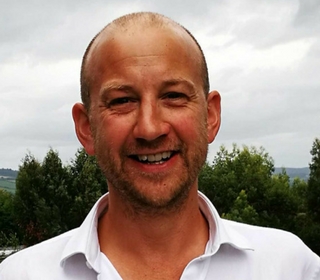BSc (Hons) Osteopathic Theory (Top-up)
Enhance your clinical reasoning and explore the osteopathic healthcare system with this unique and progressive top-up degree delivered in association with ICOM (Irish College of Osteopathic Medicine).


Build advanced clinical reasoning and develop musculoskeletal skills
Develop a greater understanding of how the human body functions and the treatment techniques that can help it.

Apply now for this course
Progress onto this course using a relevant Higher National Diploma, Diploma of Higher Education, Foundation Degree, or other Level 5 Qualification
Course Summary
This course is the final year of the BSc Osteopathy degree delivered in partnership with ICOM, the Irish College of Osteopathic Medicine. It can also be studied if you have the necessary Level 5 qualification needed, however it will not give you the necessary qualifications to practice an Osteopath in the UK, which has different requirements to the Republic of Ireland. If you're interested in becoming a licensed Osteopathic practitioner in the UK, please see our M.Ost Undergraduate Master's.
On this course, critical evaluation of the theory of Osteopathy and underpinning healthcare systems will upskill you to a point where you can think and work independently, or as part of a multidisciplinary team. The degree is built on our expertise of a multidisciplinary professional model that integrates the principles of evidence-Informed practice with a holistic paradigm of patient-centred health care. Detailed study of structure and function in health and disease associated osteopathic principals, theories and techniques are read in detail on this programme.
Why choose this course?
Remote learning
Block learning
Highly skilled Osteopathic staff
Modules for this course
1st Year
OSTH01 - Pathology
OSTH02 - Osteopathic Evaluation and Therapeutics
OSTH03 - Managing clinical uncertainty
OSTHO4 - Clinical Portfolio
OSTH05 - Private practice business module
This course is perfect if you're curious about...
The human body
Treatment and management of conditions
Differential diagnosis
Osteopathic concepts and modals
What might I become?
On completion of the BSc in Osteopathy at the University of St Mark & St John, you can go on to work in the private health care sector. There is growing demand for manual therapists following an increasing public desire for modern, patient-centred care. You might also become self-employed, running your own business.
There are also opportunities for further study. While the NHS is traditionally the biggest employer for MSK practitioners and the majority of these are physiotherapists, there are an increasing variety of opportunities within the NHS for other therapists. This strengthens your career opportunities in other workplace settings such as hospitals, private practice, education, research and industry.
How you’ll be taught and assessed?
How will you be taught?
This is a remotely taught course with 2 block weeks delivered in Cork Ireland.
How will you be assessed?
Remotely assessed via open book exams and essays.

John is a qualified Osteopath and is a qualified Acupuncturist, Sonographer, Nutritionist, strength and conditioning coach and advanced rehabilitation specialist. Following severe damage to axillary nerves in his shoulders John developed Actively Intelligent Rehabilitation (AIR), a complete health care system that considers the patient's nutritional needs, physical rehabilitation needs, acute and chronic pain management and strength and reconditioning needs as part of their treatment plan.
Fees and funding
Fees UK students: £9,790
Lecturers

John is a qualified Osteopath and is a qualified Acupuncturist, Sonographer, Nutritionist, strength and conditioning coach and advanced rehabilitation specialist. Out of his own experience of nerve damage, John developed a complete health care system that takes into account the patient's pain and needs spanning nutrition, physical rehabilitation, acute and chronic pain management, fitness and strength and reconditioning.
